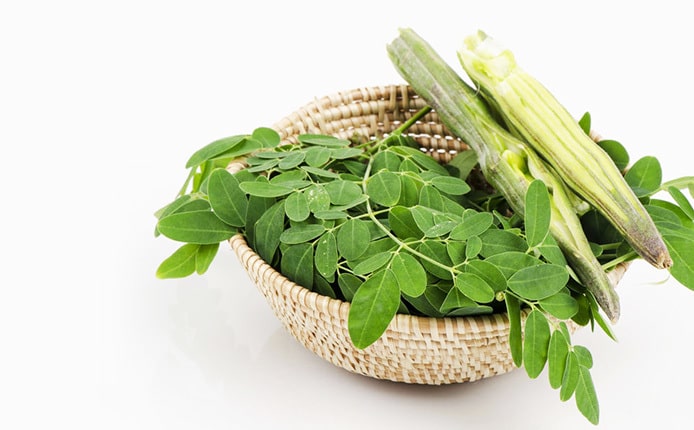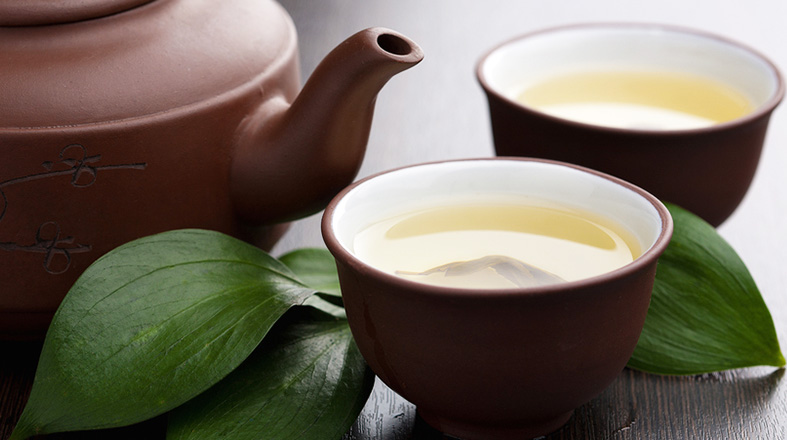The leaves of moringa, also called drumstick tree, benzoil, ben oil, or horseradish tree, are some of the known healthy plants today. With the scientific name Morninga oleifera, the plant is common in the Himalayas in northwestern India and it is highly grown in both tropical and substopical areas, where the plant’s pods and leaves are consumed as vegetables. The leaves are considered medicinal, since it has the following uses.
General Nutrition
Moringa is rich in vitamins and minerals. According to Pure Healing Foods, the plant’s leaves contain multivitamins like vitamin A and vitamin C. Vitamin A is excellent for vision and it also maintains the integrity of the skin and the mucus membranes. On the other hand, vitamin C raises the body’s defenses against infection and illness. The vitamin also promotes the function of the substance collagen, which acts as cement and binds loose connections in tissues and cells. In terms of other nutrients, the publication mentioned that moringa has twice the protein of yogurt, thrice the potassium of bananas, and quadruple times the calcium of milk. Protein is a macronutrient that helps in the growth and repair of cells and tissues. It also helps provide energy when carbohydrate and fat stores are depleted. Potassium aids in the sodium and potassium pump and it also relaxes the muscles of the blood vessels, preventing hypertension or rise in the blood pressure in the process. Meanwhile, calcium also helps promote the growth of the bones and teeth and it also helps in the excitability of the muscles.
Moringa Leaves as Antioxidants and Immune Boosters
Another benefit of moringa leaves is as an antioxidant and immunity booster. According to Aduna, the plant stands as one of those with the highest antioxidant concentrations, with an ORAC value of 157,000. As per the publication, this figure is six times the antioxidant content of goji berries. This way, the plant will be able to help the body get rid of toxins and free radicals, as well as protect, repair, and prevent cell damage. This implies that the plant also helps rejuvenate the skin, delaying the appearance of aging symptoms like fine lines and wrinkles. Moreover, the plant contains vitamin A and iron, which are vital for the normal function of the immune system. The latter mineral also ensures adequate oxygenation of cells and tissues, allowing them to perform their daily tasks.
Moringa Leaves and Diabetes Mellitus
Diabetes mellitus, an endocrine disorder marked by a prolonged increase in the blood sugar, leads to complications like heart disease, renal disease, and blindness. Good news is that moringa leaves help in the management of the disorder. According to Authority Nutrition, the leaves are capable of reducing blood sugar levels. In a trial, as per the publication, it was found that 30 women took seven grams of the leaf powder daily for three months. The study found that their fasting blood sugar levels were reduced by 13.5 percent. Also, a small scale study involving six diabetic participants learned that the addition of 50 grams of moringa leaves to a meal decreased blood sugar levels by 21 percent. As per the publication, the blood glucose reduction was due to the compounds called isothiocyanates. However, more efforts are yet to be done to amplify reliable results in humans.
Moringa Leaves and Digestive Health
Moringa leaves also help promote the health of the digestive system. According to Dr. Axe’s website, the plant has been used as treatment for ulcers, liver disease, and digestive infections. Also its oil promotes liver function and detoxifies harmful substances like metal toxins.
Moringa leaves are some of the most beneficial plants people have today. Using them in various preparations will help boost a person’s health and prevent illness.
Source: stylecraze.com








